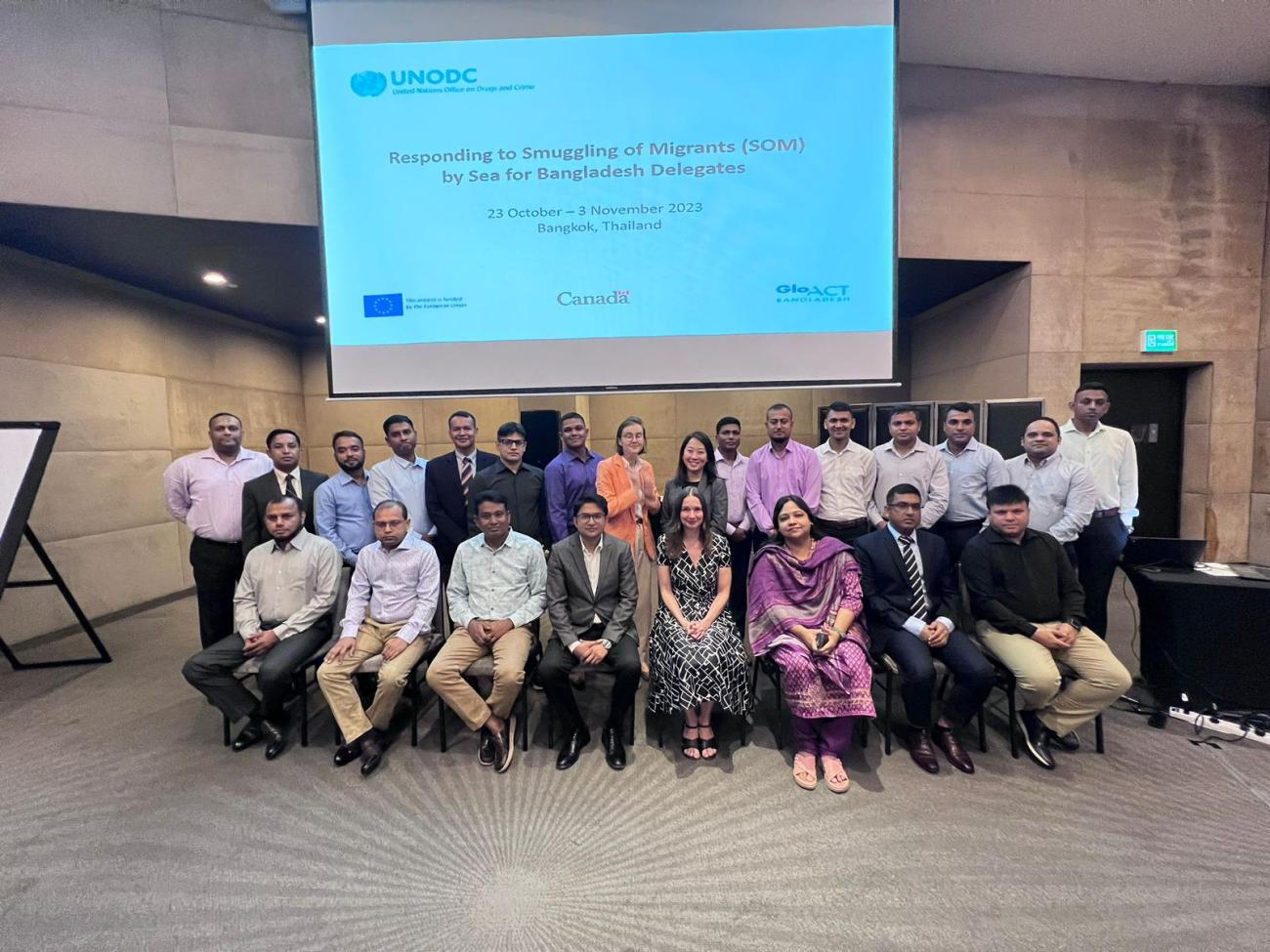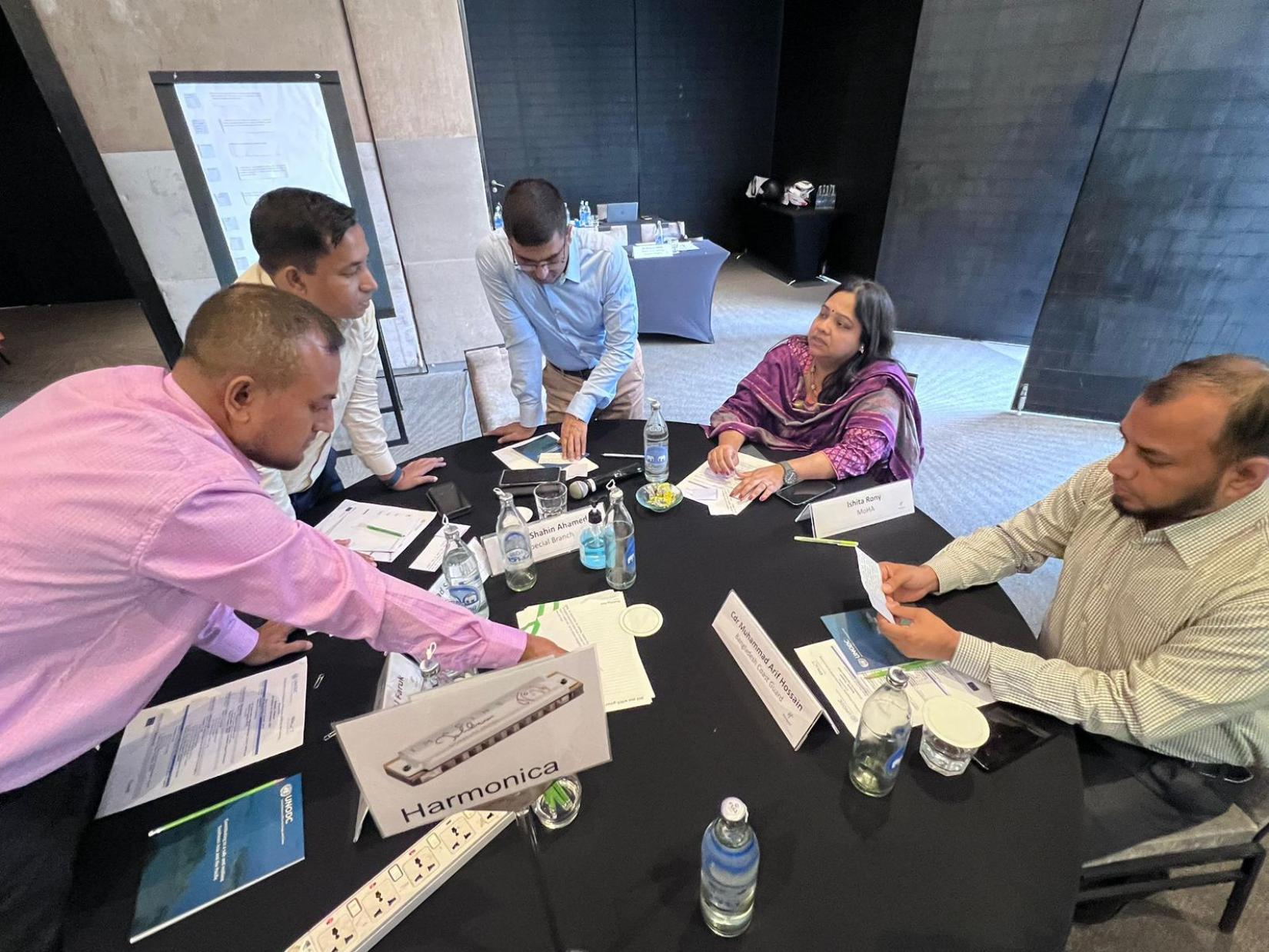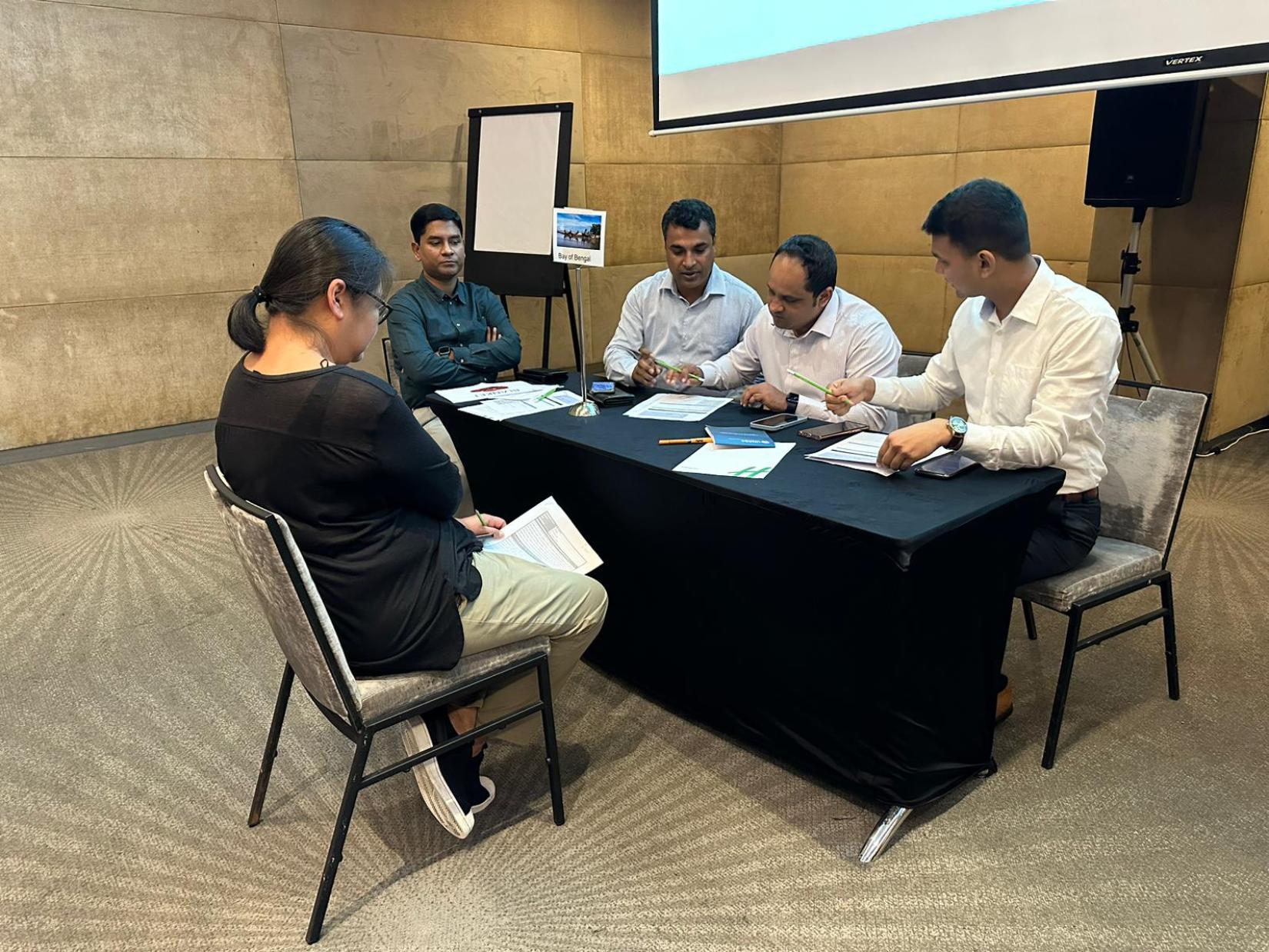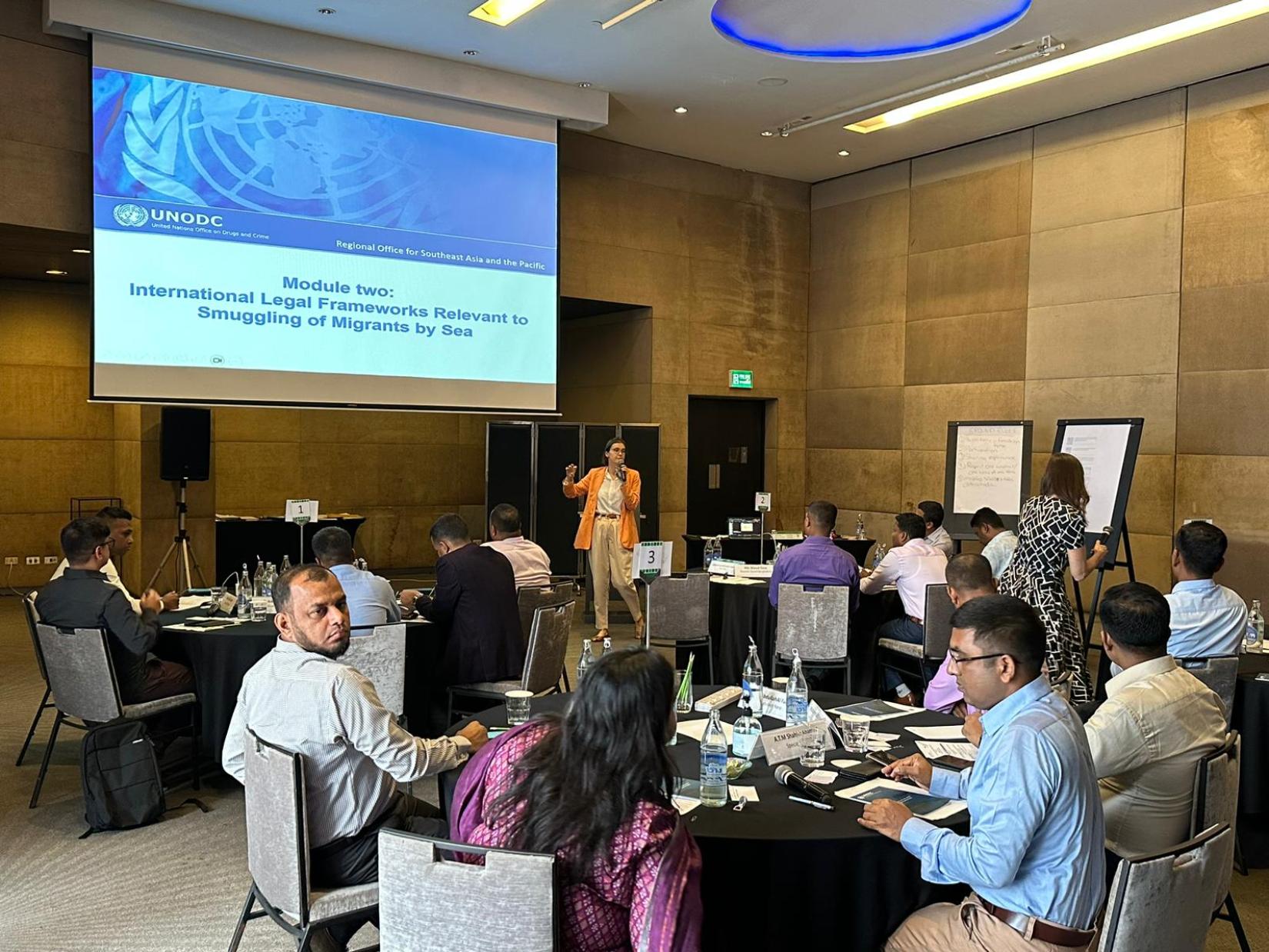UNODC's Interactive Two-Week Training Strengthens Responses to Smuggling of Migrants by Sea

2 November 2023 – Bangkok, Thailand
Smuggling of migrants by sea is an exceptionally dangerous criminal venture, with high profits to be made by smugglers yet with all the risk borne by the smuggled passengers – often with their lives. In the recent years, a combination of many factors, including the limited opportunities for regular migration, have enabled criminal groups to develop strong networks to smuggle migrants and other vulnerable groups from Bangladesh to not only the neighbouring countries, but also to countries that are significant distances away. The increasingly frequent reports of migrant and refugee smuggling by sea across the Bay of Bengal and the Andaman Sea indicates that a concerted response is not only necessary, but urgent.
As part of its efforts to support Member States address the smuggling of migrants by sea, UNODC Regional Office for South Asia (UNODC ROSA) under the Global Action against Trafficking in Persons and the Smuggling of Migrants – Bangladesh (GLO.ACT – Bangladesh) and UNODC Regional Office for the Southeast Asia and the Pacific (ROSEAP) jointly organized a two-week training course titled “Responding to Migrant Smuggling by Sea” in Bangkok, Thailand from 23 October to 3 November 2023.
The training course comprised of 12 modules, which were designed to build upon each other. They covered a wide range of topics, including: international legal frameworks relevant to the smuggling of migrants and the law of the sea; the human rights-based and the gender-responsive approaches to the smuggling of migrants; gathering of intelligence; investigation of smuggling of migrants by sea cases; investigative techniques; grounds of interception on the SOM Protocol; search and rescue at sea; screening, protection and assistance; crime scene and physical evidence examination; interviewing; financial investigation; prosecution, etc.
Ishita Rony, Deputy Secretary of the Public Security Division, Ministry of Home Affairs and the Deputy Project Director for GLO.ACT-Bangladesh, who participated in the workshop, said that she “could see the participants’ change in perception of the crime of smuggling migrants through the training” and highlighted the urgent need to enhance interagency coordination and cooperation in Bangladesh to effectively disrupt, investigate and prosecute the criminal networks behind smuggling of migrants by sea and protect the rights of smuggled migrants.
The training workshop – the first of its kind for Bangladeshi officials – was also an opportunity to jointly identify the challenges and good practices in the response to the smuggling of migrants by sea in the Bay of Bengal, foster interagency cooperation as well as discuss the way forward in enhancing the authorities’ response to the increasing involvement of organized crime in migrant smuggling with a view to improving the protection of smuggled migrants at sea. It raised awareness on the international requirements at sea that are of concern in migrant smuggling ventures as well as trained participants on investigating smuggling of migrants while upholding the rights of the migrants.
The training workshop benefitted from the engagement of a wide range of subject matter experts. Throughout the two weeks, the participants were trained by experts from the Human Trafficking and Migrant Smuggling as well as Anti-Money Laundering/Countering the Financing of Terrorism Units of the UNODC ROSEAP, together with the Liaison Officer from the New Zealand Police, the International Project Manager from the Royal Canadian Mounted Police (RCMP), Researcher from the Ocean Law and Policy Programme of the Centre for International Law of the National University of Singapore, and the Protection Expert from UNHCR Regional Office in Bangkok. The workshop was dynamically delivered, alternating between presentations, group exercises, plenary discussions, case studies, simulation exercises via a virtual reality vessel search tool, and presentations from participants.
Twenty Bangladeshi officials, nominated by the Ministry of Home Affairs, Criminal Investigation Department, Police Bureau of Investigation, Bangladesh River Police, Special Branch of Bangladesh Police, Border Guard Bangladesh, Bangladesh Coast Guard, and Bangladesh Navy participated in the training.
To know more about UNODC GLO.ACT-Bangladesh, please visit -
https://www.unodc.org/unodc/en/human-trafficking/glo-act3/index.html









